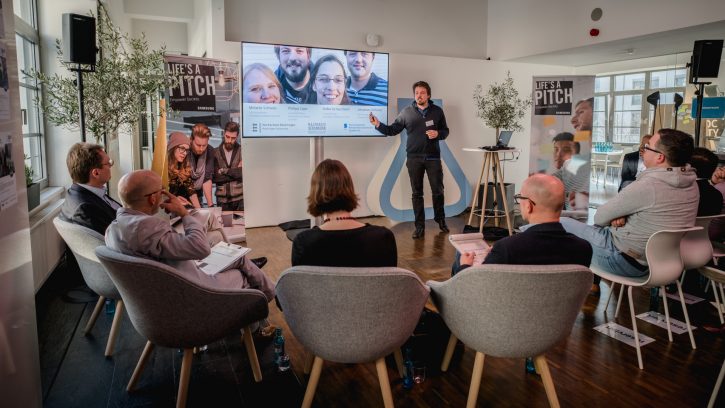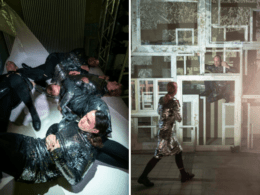In future, the rehabilitation of stroke patients should be easier, more motivating, cheaper and also faster by outsourcing parts of the rehabilitation to virtual reality. The young start-up Rehago makes it possible.
After a stroke, one arm or half of the body is often paralysed. Unfortunately, the necessary rehabilitation measures are complicated for several reasons: Often there is a financial hurdle to overcome, but above all it is a question of capacity and training possibilities for the patients. Costly rehabilitation robots are not available as widely, which results in waiting times for those affected. In addition, there are logistical questions, since people with hemiplegia are often dependent on help in order to keep doctor's appointments. All this can be avoided by providing patients with the new Rehago app and the necessary hardware.
The young start-up Rehago from Tübingen deals with rehabilitation for hemiplegic stroke patients. The team is relying on virtual reality for this and have been able to knock down an incredible number of doors with their idea in recent months and arouse interest in Rehago worldwide: Samsung has already taken Rehago gently under its wing and is supporting the founders in the "Life's a pitch" competition, but also beyond that.
Mirror therapy with VR
Using VR glasses and the Rehago app, patients can perform the exercises regardless of their location - for example, in their own four walls. These are based on common therapy methods, for example mirror therapy. Mirror therapy has been a proven treatment method in such cases. Here, a mirror creates the impression of seeing the movement of the affected arm. Through this illusion, new connections are established in the damaged areas of the brain and the recovery of the paralysed arm is supported.
The patient can choose whether to use the app alone, if he has the necessary technology in the house, which is charged at 30 euros per month. If they also want the appropriate hardware, they pay 70 euros per month. Orders can be placed on this page.
These exercises are mastered in a playful way, so that patients can not only practise at home without complications, but are also motivated in a playful way through the gamification approach. They are not dependent on doctor's appointments and expensive equipment, save time and are often even finished with rehab faster than patients who are treated classically.
Source: mobilegeeks / Youtube









